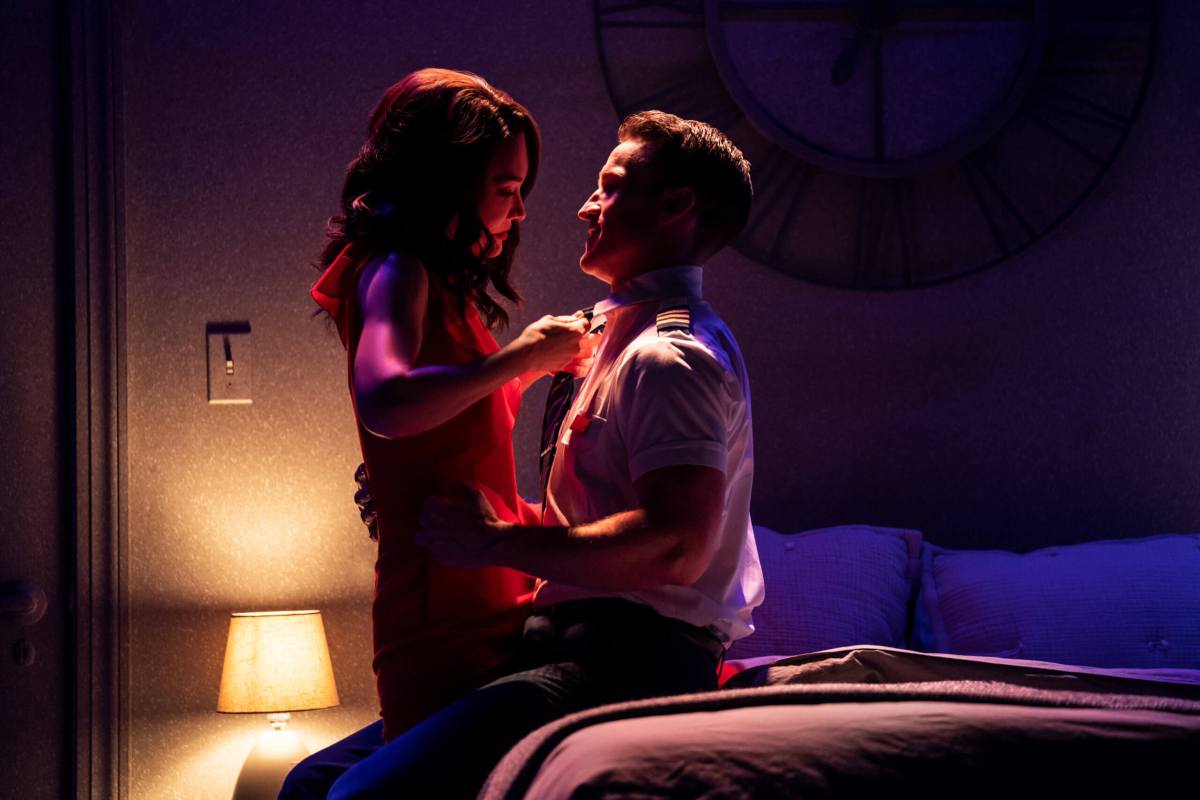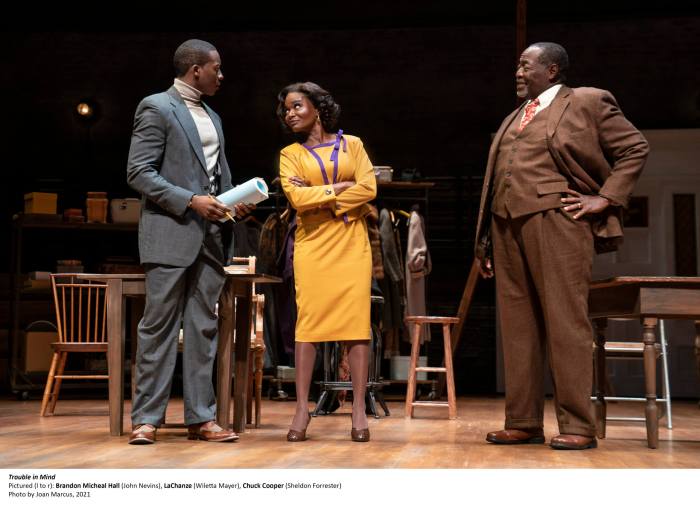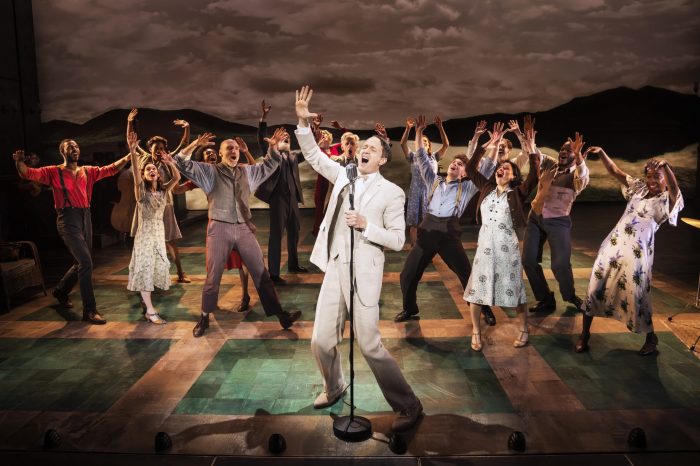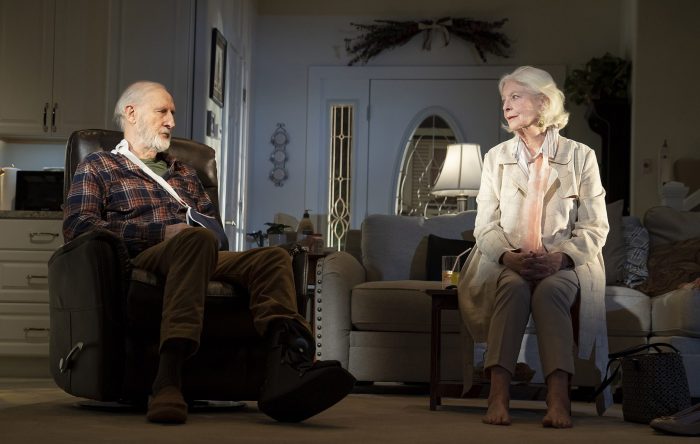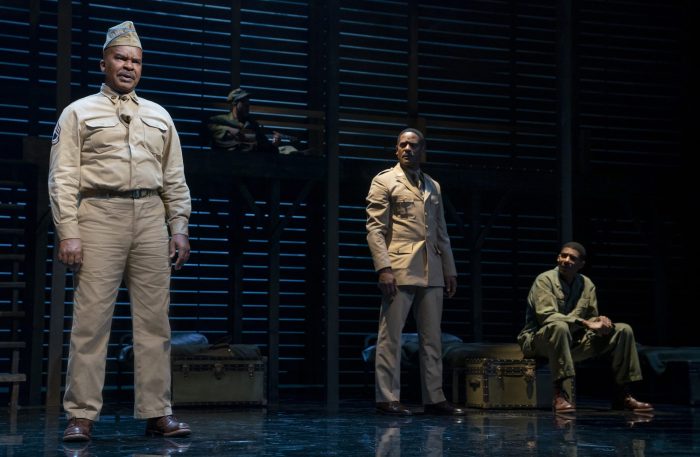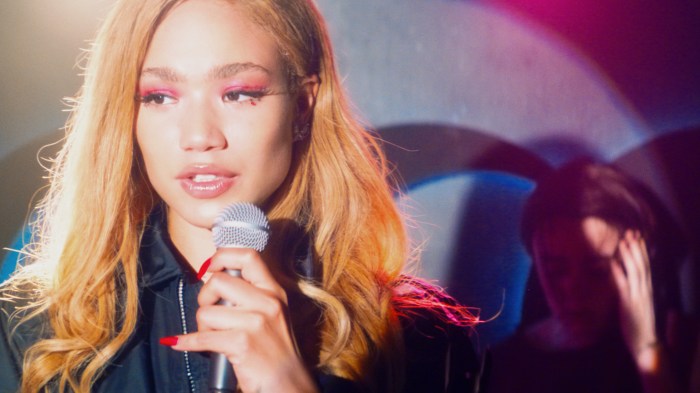Just in case there is any doubt that the musicals of Stephen Sondheim (who died on Nov. 26 at the age of 91) will continue to be staged, studied, revered, and reinvented long into the future, one need only look at the meticulously reengineered, gender-reversed Broadway revival of “Company,” which originated in London in 2018 and has finally opened on Broadway after getting shut down in previews during the early days of the pandemic in March 2020.
“Company,” which debuted on Broadway 1970 and firmly established Sondheim as an innovative and groundbreaking composer-lyricist, is an ideal show to revisit right now. Its themes of feeling alone and overwhelmed, and the challenges of achieving genuine human connection, feel especially relevant in a world grown accustomed to social distancing and social media noise.
Using conceptual, nonlinear storytelling, “Company” (which has a sharp-minded book by George Furth) revolves around the 35-year-old bachelor Bobby as he internally debates whether he should get married based on his often baffling interactions with his eccentric married friends and the various women he has dated.
In Marianne Elliott’s bold and contemporized production, the male Bobby has become the female Bobbie. To accommodate the gender reversal, some of the lyrics and dialogue have been altered, and the genders of some other characters have been switched around, such as turning the girlfriends into boyfriends and including a same-sex couple. Sondheim, who had a reputation for encouraging directors to rethink and reimagine his musicals, was very supportive of Elliott’s production and even attended a preview performance right before he passed away.
With a handful of exceptions, turning Bobby into Bobbie mostly works. In fact, making the character a woman whose biological clock is ticking (literally ticking in this production) adds urgency to the question of whether and when the character will settle down and marry.
The production (which is a bit overlong, at just under three hours) contains superb staging, visual design (including oversized party balloons, an “Alice in Wonderland” motif, and even a rainfall effect), music direction, and casting – with one notable exception in its leading lady, Tony winner Katrina Lenk (“The Band’s Visit”), who is plainly miscast as Bobbie, lacking both the vocal chops and emotional vulnerability for the role.
Relying upon sex smirks and curious glances, Lenk gives a passive, barely passable performance in which a great production seems to operate around her instead of with her. Its weakest points occur during her three solos, including the climactic “Being Alive,” which here feels hollow and sounds off. (One can’t help but wonder why Rosalie Craig, who played Bobbie in London to great acclaim, did not come to Broadway.)
However, it is easy to overlook Lenk in light of the outstanding supporting cast. As Joanne (the role famously originated by Elaine Stritch), Patti LuPone is complex, reckless, and needy, making the torch song “The Ladies Who Lunch” into a blazing aria of self-loathing. Incredible comic turns are provided by Matt Doyle (who nails the super-speed patter song “Getting Married Today”), Claybourne Elder, Jennifer Simard, Christopher Sieber, and Christopher Fitzgerald.
I could easily sit through “Company” again, though I would prefer to see it with a different Bobbie – or Bobby for that matter. With a few more textual changes, a gay male Bobby would work in this production (which already acknowledges same-sex marriage) and reinvigorate “Company” all over again. (On the other hand, a gay female Bobbie might require a new production based on the original script.)
“Company” plays an open run at the Bernard B. Jacobs Theatre, 242 W. 45th St., companymusical.com.



